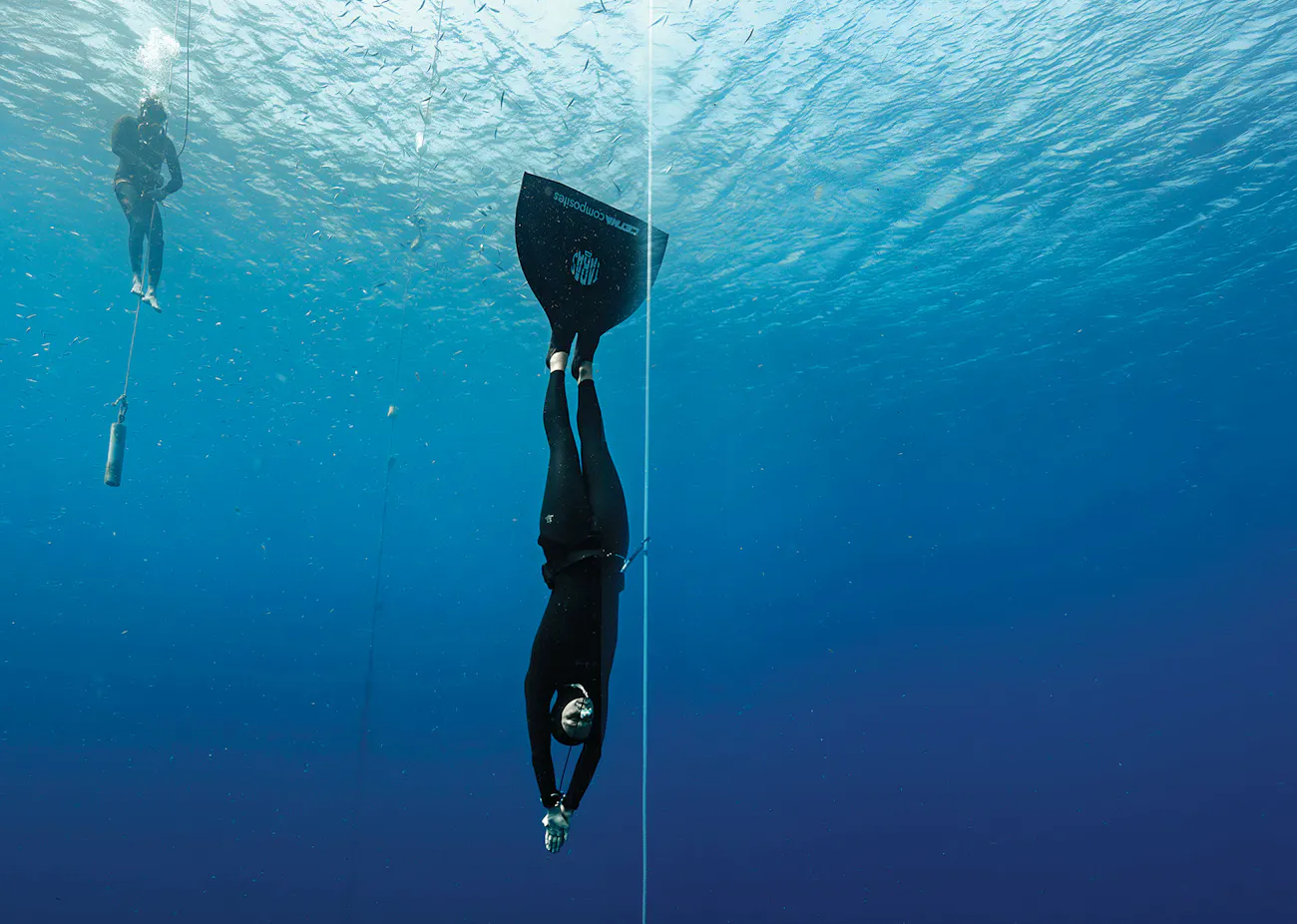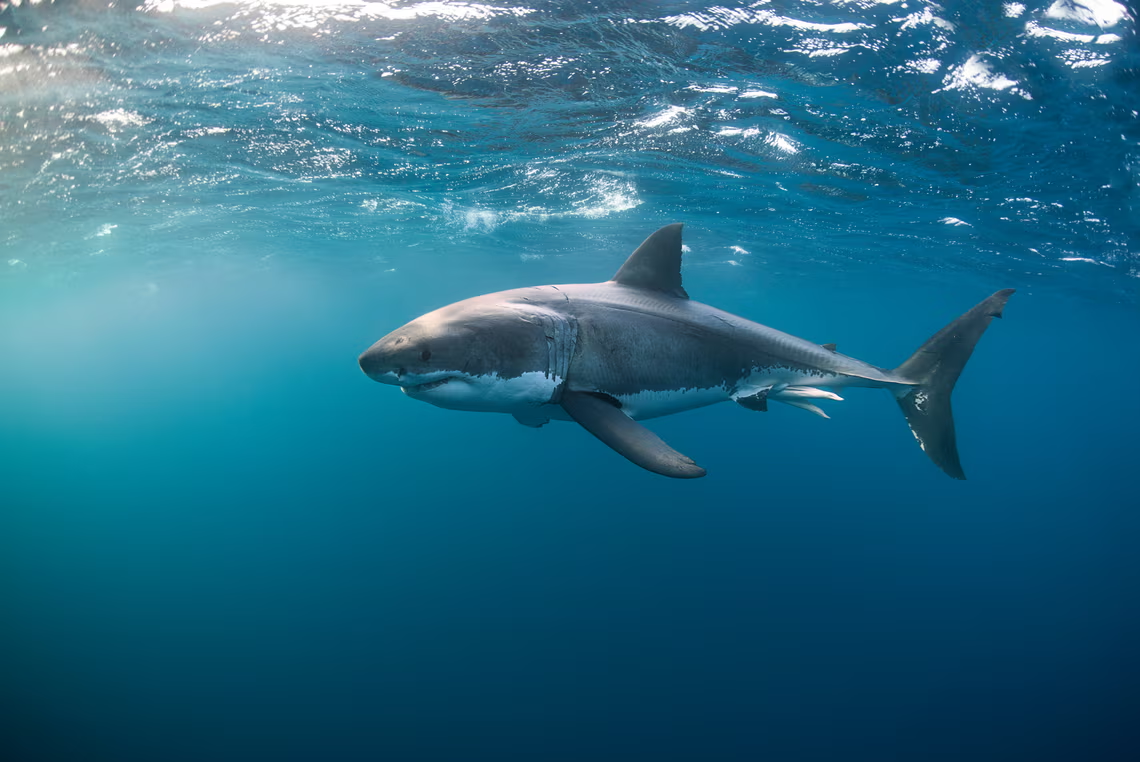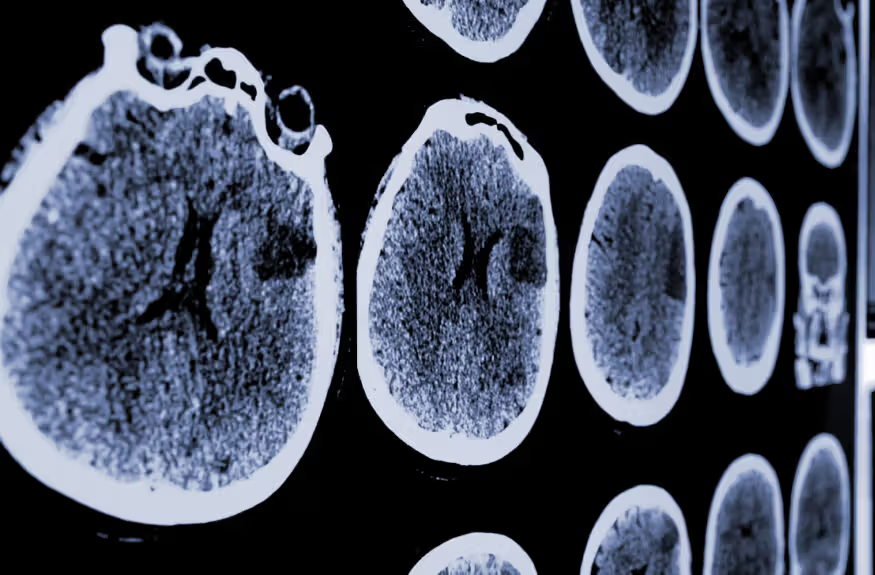She became one of America's best free divers at the age of 40

From Texas Monthly: "Sara Burnett had initially planned to spend only a few weeks practicing at Blue Element Freediving, a training center in the Caribbean island nation of Dominica. The area is popular among free divers, who plunge deep into open water without a scuba tank, hitting depths that would make a civilian’s ears pop upon contemplation. Burnett, who’s 41, grew up largely in Plano but has rarely been landlocked since: She now lives in St. Lucia, an island not far from Dominica. She started free diving in July 2023, less than a year prior to her visit to Blue Element, and was already reaching the same depths as veteran divers. But she treated the sport like a hobby — she hadn’t considered entering any high-level contests. She was still so new to the sport that she barely knew the rules of competitions. Floating on the surface before her first official dive, she asked the judge whether she should submerge before the judge finished counting down or after. “She was like, ‘Read the rule book!’ ” Burnett recalls.
The thrill killing of 14-year-old Bobby Franks in 1924 changed our thinking about crime

From Nautilus: "In May of 1924, the city of Chicago was shocked by a brutal murder. Two precocious University of Chicago graduate students, Nathan Leopold, 19, and Richard Loeb, 18, lured, abducted, and murdered Loeb’s 14-year-old cousin Bobby Franks by clubbing and asphyxiation. The duo fancied themselves as master criminals beyond the law — they planned to play a ransom game with the victim’s family, savor the newspaper reportage, and get away with murder. But the body was discovered before the ransom could be collected. The thinking of the time was that crimes were committed by individuals of low intelligence. Reformers, on the other hand, saw gangsters as the products of environmental factors like poverty and urban tenements. But Leopold and Loeb were different and their case had explosive consequences. It put the very idea of free will and responsibility on trial. People weren’t to blame for their crimes because they were at the mercy of their individual biology. Science said so."
This fisherman is one of the few people who have seen great white sharks mating

From The Guardian: "It has been described as the holy grail of marine biology, an act that is crucial to the survival of apex predators but has never been documented in detail: the mating of great white sharks. Despite decades of research into the habits of the white pointer, how and where the marine creatures mate has largely remained a mystery. Until now. The testimony of a fisherman working in the frigid waters of the Otago Peninsula on the east coast of New Zealand’s South Island has shed light on great white sex in astonishing detail. Dick Ledgerwood’s account is only the second of its kind in the world. “It’s hard to witness [copulation] for any species of shark," said one scientist. "Great whites are large, highly mobile, and rare, and it really diminishes the chance you’ll be able to observe that in the wild.” Duffy says it is likely great whites choose quiet, out-of-the-way places to mate. Basking and whale shark mating has also never been seen in the wild, among many other marine animals, for similar reasons."
Hi everyone! Mathew Ingram here. I am able to continue writing this newsletter in part because of your financial help and support, which you can do either through my Patreon or by upgrading your subscription to a monthly contribution. I enjoy gathering all of these links and sharing them with you, but it does take time, and your support makes it possible for me to do that. I also write a weekly newsletter of technology analysis called The Torment Nexus.
For 25 years doctors were convinced she had schizophrenia and then it disappeared

From The New Yorker: "When Christine was nine years old, her mother, Mary, said, “Come here. I want to tell you a secret.” They sat on a brown couch in their living room, in Santa Ana, California. Mary, who was forty-three, said that a man she had known in medical school, a professor, was sending her messages about a plan to take her away and live in a mansion together. After being committed to a psychiatric hospital, Mary was discharged in September, 2023. A week later, she collapsed in her bathroom and struggled to move. She was taken to a hospital in Brooklyn, where the doctors discovered that she had lymphoma, a sometimes fatal form of cancer. She began a treatment that combined chemotherapy with rituximab, a medication that targets antibodies involved in the body’s immune response. A month after Mary finished chemotherapy, Christine and Angie asked a psychiatrist at the hospital to examine her. Christine said, “The psychiatrist was, like, ‘Why have you called me here? I don’t understand. She has no symptoms.’ And we were, like, ‘Yeah, that’s the reason we’ve called you here.’ ”
A futuristic system of pneumatic tubes moves garbage underground on Roosevelt Island

From Untapped Cities: "Just prior to New York State going on PAUSE for coronavirus, we went to visit Roosevelt Island‘s amazing pneumatic tube trash system. Below the streets, residential garbage is whisked underground and out of sight from apartment buildings to a central Automated Vacuum Assisted Compacting (AVAC) facility. Operated by the New York City Department of Sanitation, it is only one of two such systems in the United States at this scale (the other being at Disney World). The visit proved timely, as New York City is just beginning to assess the impact the pandemic has on essential workers. For nearly half a century, Roosevelt Island’s residential trash has been handled without the need for curbside truck pickup, which in turns limits the need for workers to be out handling the garbage. During major disruptions in recent memory, like Hurricane Sandy and blizzards, trash collection continued on Roosevelt Island even when street collection stopped in the the rest of the city."
Three kayakers ride a creek down a drainage ditch at high speed

Acknowledgements: I find a lot of these links myself, but I also get some from other newsletters that I rely on as "serendipity engines," such as The Morning News from Rosecrans Baldwin and Andrew Womack, Jodi Ettenberg's Curious About Everything, Dan Lewis's Now I Know, Robert Cottrell and Caroline Crampton's The Browser, Clive Thompson's Linkfest, Noah Brier and Colin Nagy's Why Is This Interesting, Maria Popova's The Marginalian, Sheehan Quirke AKA The Cultural Tutor, the Smithsonian magazine, and JSTOR Daily. If you come across something interesting that you think should be included here, please feel free to email me at mathew @ mathewingram dot com



